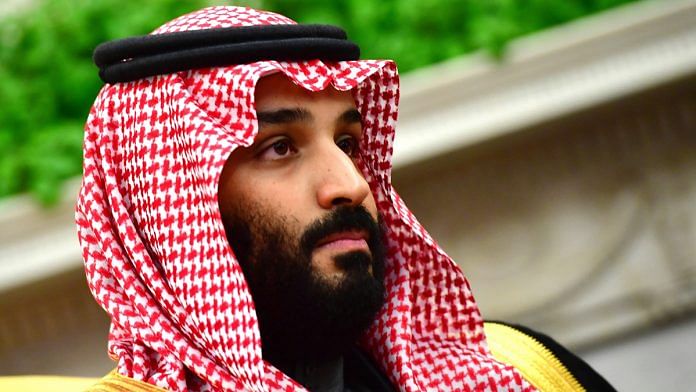Turkish police allege the journalist, Jamal Khashoggi, who was critical of the Prince, was tortured and killed by a team from Saudi Arabia.
In other circumstances, Crown Prince Mohammed bin Salman’s interview with Bloomberg News would have provided much-needed reassurance to investors anxious about the progress of his plans to reform Saudi Arabia.
The prince made it clear he remains committed to his ‘Vision 2030’ agenda to diversify his oil-dependent economy, even if some specific goals, such as Aramco’s initial public offering, have had to be delayed. The overall message of the interview was that construction is proceeding apace on the new Saudi Arabia of Prince Mohammed’s conception.
But this message has been overshadowed by the news from Istanbul, where a critic of the Crown Prince is missing, and possibly dead — murdered, authorities say, in the Saudi consulate.
Prince Mohammed told Bloomberg News that Jamal Khashoggi, a Saudi columnist living in self-imposed exile, had left the building shortly after entering it. But Turkish police allege Khashoggi was tortured and killed by a team flown in from the kingdom. The Saudi government has denied the allegation.
Inevitably, the Khashoggi affair has drawn renewed attention to a broad crackdown on dissent under Prince Mohammed, one that has too frequently stolen the spotlight from his reform efforts.
In previous instances, the government’s tendency has been to reject criticism out of hand, and with ferocity: consider its response to tweets by Canada’s foreign minister and the Canadian embassy in Riyadh. Such heavy-handedness has made the crown prince appear vindictive and capricious, rather than visionary.
Now, the prince has an opportunity to demonstrate that his new Saudi Arabia can be a place where crises such as Khashoggi’s disappearance are handled with genuine concern for a citizen, even if he was a critic of the government, and with respect for the processes of law and diplomacy.
Prince Mohammed has offered to allow the police to enter and search the consulate. This is a good start. But he should go further and make clear his commitment to a full investigation and the complete application of justice. A gesture of contrition toward Khashoggi’s family would also be appropriate.
How the crown prince responds to the Khashoggi affair will inform perceptions of his new Saudi Arabia as much as any public statements. The silencing of critics gives pause not just to ordinary Saudis, human-rights organizations, and the kingdom’s international allies, but investors, local and foreign. Business and trade do not thrive in a climate of fear.
Saudi Arabia already has a problem of capital flight, and Prince Mohammed, who is keen to create a robust private sector, can ill afford more skittishness. A demonstration of commitment to justice would be more reassuring than a restatement of the ‘Vision 2030’ goals.
In the interview, Prince Mohammed tried to distance himself from the expectations that freight his every action. “I didn’t call myself a reformer of Saudi Arabia,” he protested. “I am the crown prince of Saudi Arabia and I am trying to do the best that I can do through my position.”
That should include doing his best for Jamal Khashoggi.-Bloomberg



